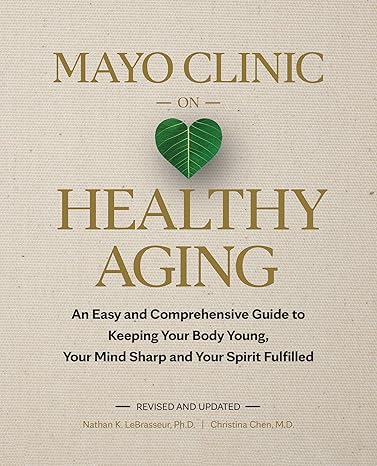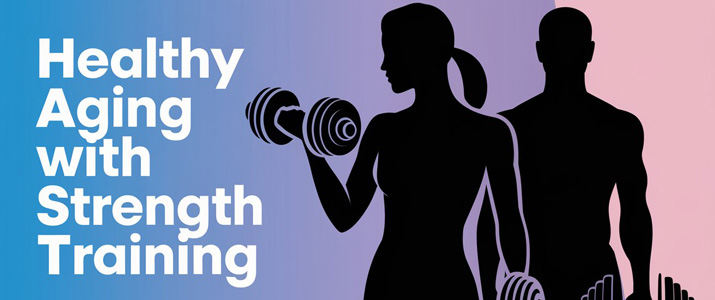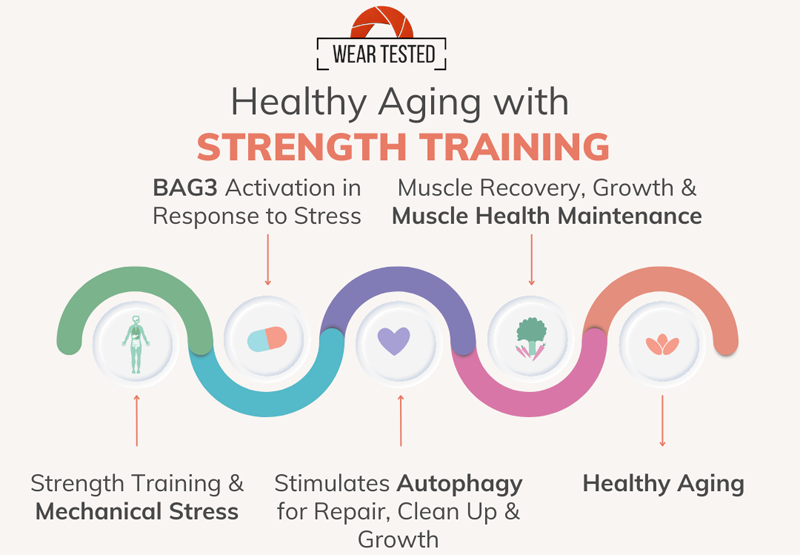Longevity Series
- Centenarian Decathlon (Living Strong and Healthy at 100)
- Healthspan & Biological Age (Maximize Health, Minimize Disease)
- Healthy Aging (Unlock Muscle Health with Strength Training)
Healthy Aging with Strength Training
Strength training exercises can kickstart your body’s natural cleanup process, which is crucial for keeping our organs and tissues healthy and supporting healthy aging.
When you work out, your muscle cells experience wear and tear, so your body uses a recycling system to get rid of any damaged parts.
This process, called autophagy, is like the body’s trash collection service. It gathers up worn-out cellular parts in a “garbage bag” (called an autophagosome) and broken down into basic components and reused.
A key player in this process is a protein called BAG3, which helps spot damaged parts and ensures they’re collected in an autophagosome. Strength training activates this protein.
Resistance exercises are particularly effective at turning on BAG3, which helps recognize and remove cellular waste through autophagy.
Research published in the journal Current Biology by Höhfeld and colleagues shows that strength training triggers a cellular signal to activate BAG3 in human muscles.
These effects can start after just a few reps, as long as you’re lifting close to your maximum weight.
It’s important to lift heavy enough to really challenge your muscles and cause tiny tears in the muscle fibers.
BAG3 is most activated when you work larger muscle groups, like those in your legs, chest, and back. Exercises like weightlifting, squats, and pull-ups can help overload these muscles.
There are several types of autophagy. With intermittent fasting, autophagy triggered helps break down excess cellular material when nutrients are low. In contrast, BAG3-mediated autophagy focuses on clearing out damaged or clumped-up proteins.
Why is Strength Training Important?
Strength training, also known as resistance training, is important for a variety of health and fitness reasons:
- Increases Muscle Mass and Strength: Strength training helps build and maintain muscle mass, which improves overall strength and physical performance in daily activities and athletic endeavors.
- Enhances Bone Density: Resistance exercises stimulate bone growth and improve bone density, reducing the risk of osteoporosis and fractures, especially in older adults.
- Improves Metabolic Rate: Increasing muscle mass through strength training boosts the resting metabolic rate, meaning the body burns more calories at rest, which can help with weight management and fat loss.
- Supports Joint Health: By strengthening the muscles around joints, strength training can improve joint stability and reduce the risk of injuries. It also helps in managing conditions like arthritis by maintaining joint flexibility and reducing pain.
- Boosts Mental Health: Strength training reduces symptoms of anxiety, depression, and stress. It can also enhance the mood and improve self-esteem and confidence.
- Enhances Cardiovascular Health: Regular strength training can improve heart health by lowering blood pressure, reducing LDL cholesterol, increasing HDL cholesterol, and improving blood circulation.
- Improves Functional Fitness: Strength training enhances functional fitness, which is the ability to perform everyday activities efficiently and safely, such as lifting, carrying, and climbing stairs.
- Promotes Longevity and Quality of Life: By improving muscle strength, bone health, metabolic function, and overall physical fitness, strength training contributes to a longer and healthier life, reducing the risk of chronic diseases and enhancing the quality of life as people age.
- Supports Healthy Aging: Strength training helps combat the natural decline in muscle mass and strength that occurs with aging (sarcopenia), enabling older adults to maintain independence and mobility.
Overall, strength training is a versatile form of exercise that provides numerous benefits for physical health, mental well-being, and overall quality of life, making it a valuable component of a well-rounded fitness routine.

Mayo Clinic on Healthy Aging provides practical guidance on thriving in later years through proactive health management and lifestyle choices.
“Healthy aging is a lifelong journey, and there may be times when the task seems overwhelming. However, by having a good plan, you can help reduce potential pitfalls and setbacks.”


